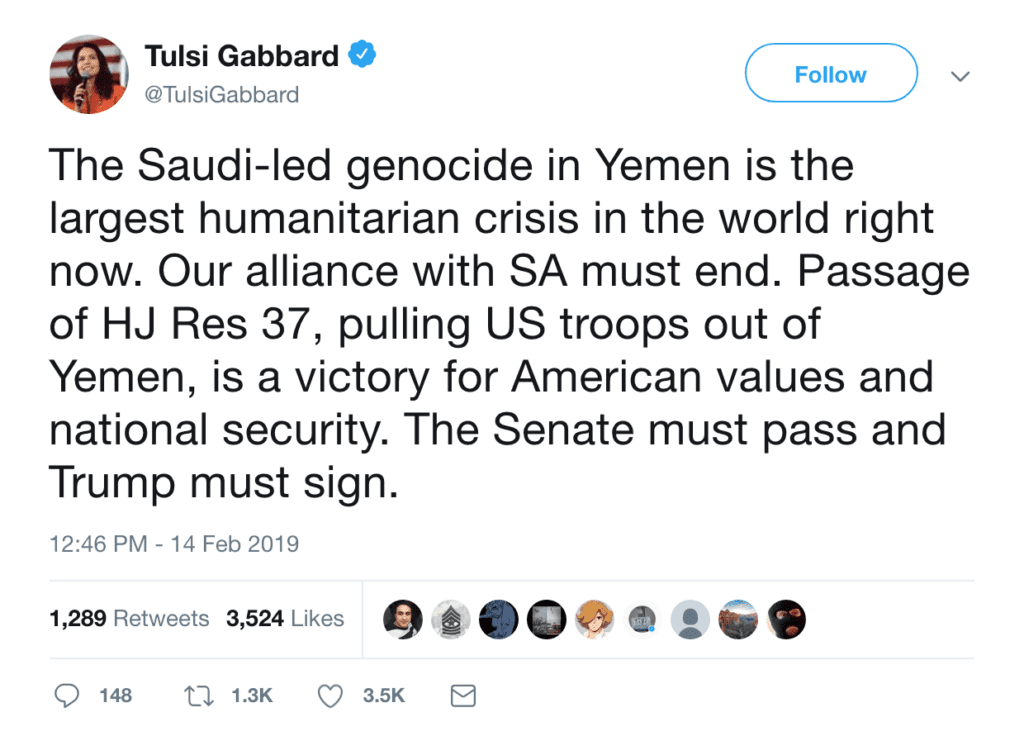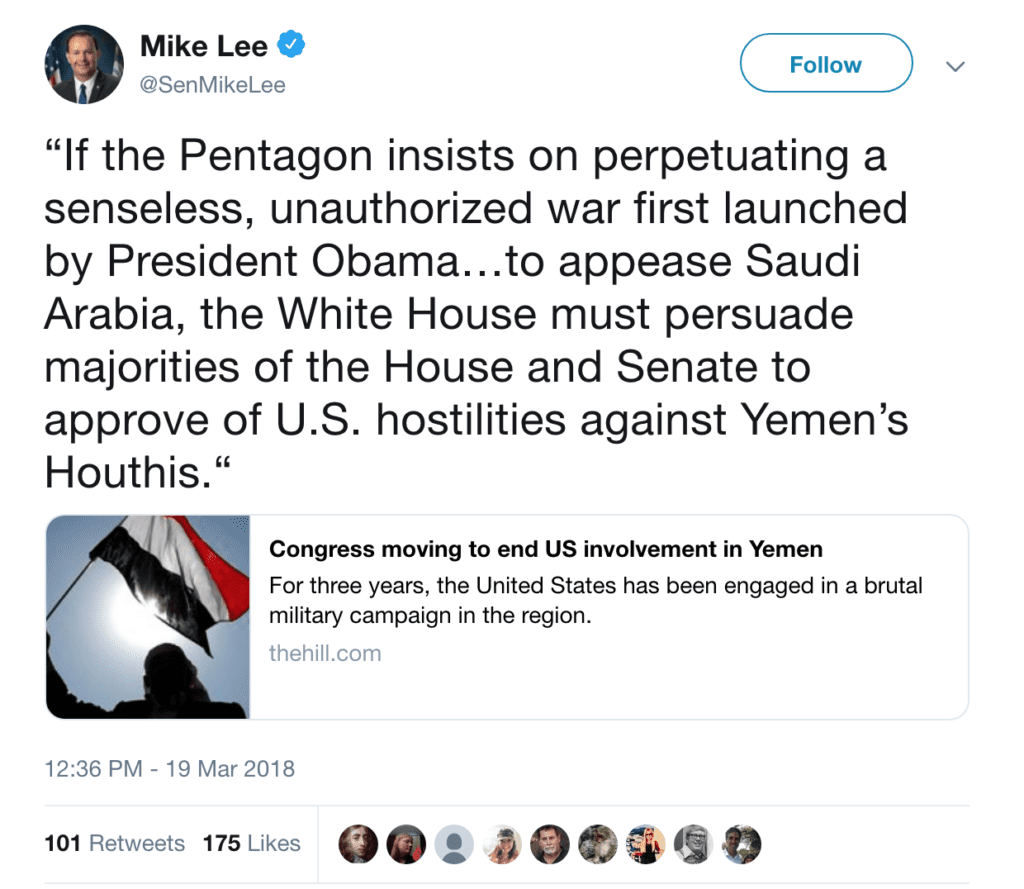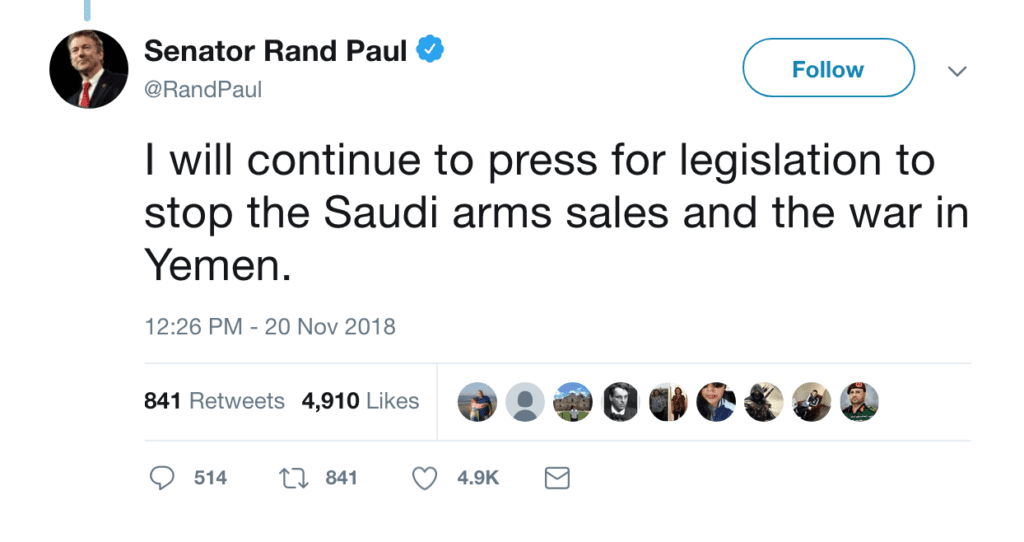On April 16, 2016, President Donald Trump apparently yielded to neoconservative pressure when he vetoed a resolution that would stop U.S. military intervention in the Yemeni Civil War.
This is yet another sign of the Trump Administration’s wavering foreign policy. A few weeks ago, the Trump administration declared the Islamic Revolutionary Guard Corps a terrorist group, and now the Trump administration is doing Saudi Arabia’s bidding.
The Yemeni Civil War, a conflict between the Saudi-backed government of Abdrabbuh Mansur Hadi and the Iranian-backed Houthi rebels, is just another foreign policy quagmire in the making. Some reports say that this conflict could potentially leave 13 million Yemeni civilians in famine-like conditions. Starting in 2015, the Yemeni is just the latest in the line of never-ending conflicts that are typical of the Middle East.
The bill in question, H,J, Res, 37, was able to make it out of the House and Senate, but then met Trump’s eventual veto earlier this week. It would have called upon the War Powers Resolution to put an end to all aid handed out to the Saudi coalition that is fighting off the Houthi rebels in Yemen.
Trump defended the veto on the grounds that “This resolution is an unnecessary, dangerous attempt to weaken my constitutional authorities, endangering the lives of American citizens and brave service members, both today and in the future.” 2020 Presidential hopeful Tulsi Gabbard has been one of the most vocal critics of the U.S.’s involvement in this conflict. She said that “The Saudi-led genocide in Yemen is the largest humanitarian crisis in the world right now. Our alliance with SA must end.” She was one of the most notable elected officials to vote in favor of this resolution.

Opposition to U.S. involvement in Yemen has cut across party lines. Senators Mike Lee and Rand Paul have been vocal proponents of pulling the U.S. out of Yemen. Both of them voted for the resolution alongside Gabbard in attempt to end this conflict.


Any non-interventionist who saw the Trump administration as a potential avenue for a restrained foreign policy should be disappointed with Trump’s latest decision. Trump was originally elected on a platform that emphasized less nation-building and more military restraint in foreign affairs.
However, the military-industrial complex and their representatives in the State Department have other things in mind. With its more hawkish approach to countries like Iran and Venezuela, the foreign policy establishment seeks to maintain the interventionist status quo of the past few decades.
To add insult to injury, the promising North Korean negotiations have been largely derailed by national security adviser John Bolton according to several reports.
The only silver lining is that no new wars have been carried out under Trump. However, as Commander-in-Chief, Trump can still set the record straight. Constitutionally, he has the final say in the deployment of military resources abroad. If he wants to live up to his America First rhetoric, he must give the neocons in his administration the cold shoulder.

























